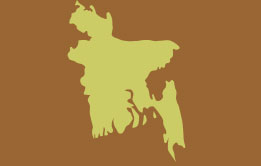In recent years, Bangladesh has repeatedly been named the most corrupt country in the world — a condition with dramatic consequences for practicing journalists. Reporting on crime and corruption — much of which is linked to political parties — often brings threats, brutal physical attacks, and even murder. Journalist killings in Bangladesh have averaged about one per year for roughly the last decade, but instances of intimidation and physical violence are much more frequent, occurring almost daily in recent years.
In response to general lawlessness, the national government has initiated paramilitary crackdowns, particularly in rural areas outside the capital of Dhaka. Journalists have reported human rights abuses by government task forces, which has led to yet more harassment and violence against journalists — this time at the hands of the government enforcers. To counter these accusations, task force members may falsely charge the abused journalists themselves with extortion and other crimes. Meanwhile, most attacks on journalists go unpunished, and efforts to bring justice can become bewilderingly complex. One investigation into the murder of a reporter led to 17 arrests, five of whom were journalists. In another case, a former member of Parliament and his aides were charged for the attempted murder of an internationally renowned journalist. However, the case has become bogged down in the courts, and the accused has fled the country only to continue to threaten his victim and other journalists from afar.
Corruption extends to television and radio, as well. State-run media dominates both broadcast media, and self-censorship is common. Recent efforts to create private competitors appear to have been thwarted, at least for a time, by entrenched political interests influencing the courts and licensing procedures.
While foreign media do operate in Bangladesh, their penetration and freedom are limited. Foreign media coverage of Bangladesh itself, especially warnings of a potential al Qaeda presence, has raised sensitivity to and suspicion of media investigations. Cases in which foreign journalists are deported, and Bangladeshis working alongside are charged with “anti-state activities,” have been reported by press freedom organizations.
- Previous: Introduction
- Next: China



